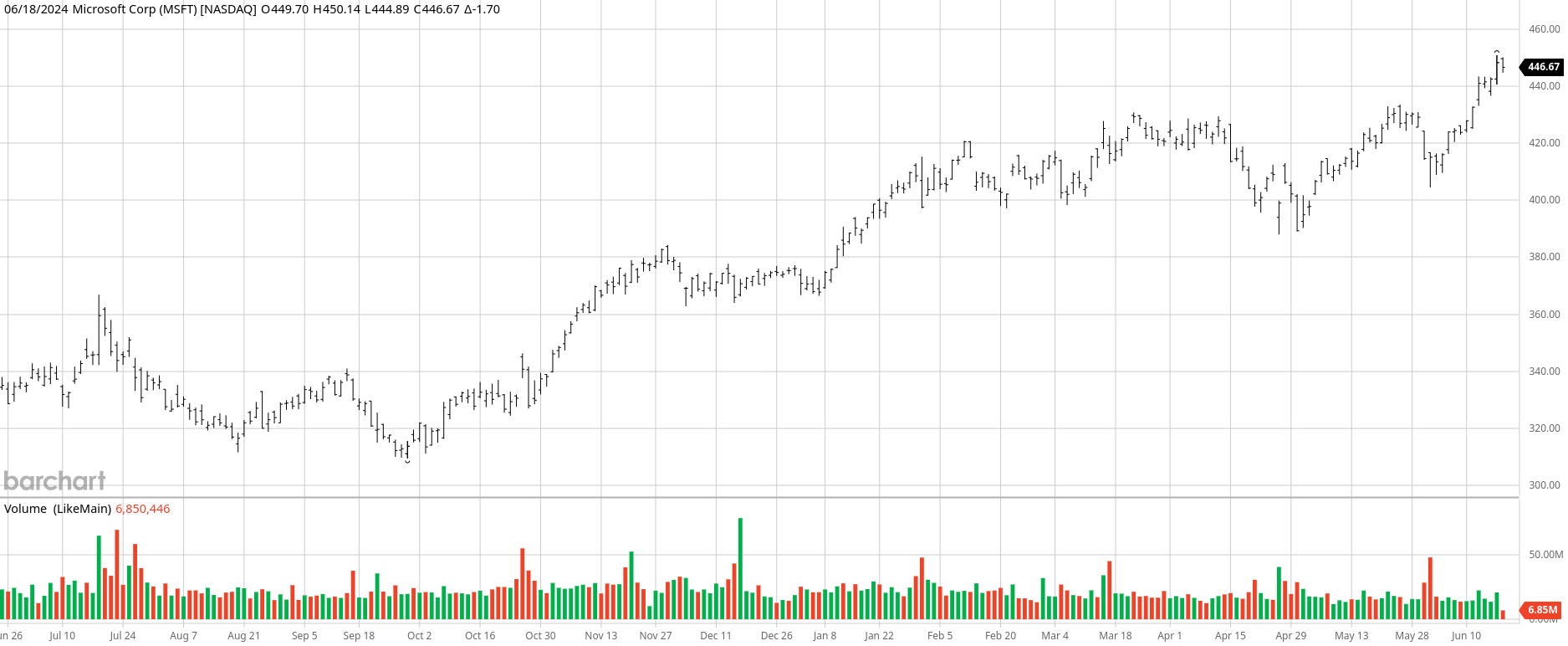Apple’s AI Strategy Unleashes Market Frenzy
Can Siri’s intelligence breathe new life into the iPhone’s market share? For investors scrounging for AI prospects, the answer is a resounding yes. Apple’s shares skyrocketed by 10%, propelling the company’s market capitalization to surge by over $300 billion shortly after unveiling its much-anticipated AI blueprint. Garnering global headlines, Apple momentarily eclipsed Microsoft to become the world’s most valuable corporation, only to be swiftly supplanted by Nvidia.
The euphoria was palpable as Apple showcased its OpenAI partnership at its annual developer event, promising a fresh iPhone “super cycle” driven by innovative AI features. However, some were left yearning for more, as the focus remained predominantly on Apple products.
Apple’s Unique Positioning in AI Landscape
Apple’s narrative was crystal clear – the partnership with OpenAI is just the tip of the iceberg. Positioned as a purveyor of generative AI models tailored to understand individual users through its “Apple Intelligence,” the tech giant aims to embed these models into its upcoming operating systems, namely iOS 18, iPadOS18, and macOS Sequoia.
While Apple might not boast generative models as robust as OpenAI and Google, it serves as a gateway to supplementary products in the market. With its latest A17 Pro and M-series chips powering the newest iPhone and Macs, Apple is poised to elevate the AI capabilities of its devices significantly.
Despite the market frenzy, skepticism looms over Apple’s offerings, with its features potentially mirroring existing functionalities of rival platforms such as Gmail.
The Climb for Apple and AI
In an industry saturated with AI-powered devices, Apple is on a journey to catch up with competitors like Samsung, Google, and other Chinese manufacturers already integrating AI into smartphones. The rise of the “AI smartphone” phenomenon is reshaping the tech landscape, with estimates projecting that these devices will encompass 43% of global smartphone shipments by 2027.
Microsoft, Qualcomm, and Advanced Micro Devices have also made significant strides in the AI PC realm, challenging Apple’s dominance with their innovative offerings.
As the AI race intensifies, the tech world eagerly watches how Apple navigates this fast-evolving terrain.
The Microsoft Advantage in the AI Arena
While Apple grabs headlines, Microsoft stealthily forges ahead with its AI and cloud endeavors. Positioned as a powerhouse in the technology realm, Microsoft’s diversified portfolio and robust assets make it a standout player in the industry.
With a firm focus on long-term growth through AI innovations and cloud ventures, Microsoft boasts a comprehensive suite of products targeted at enhancing enterprise efficiency, cloud migration, and business intelligence. The company’s strategic investments in AI are reflected in the seamless integration of cloud-based services such as Office, Dynamics, Teams, and Azure, constituting a significant portion of its revenue.
Furthermore, Microsoft’s strategic acquisitions and investments in AI startups like Mistral AI underscore its commitment to AI advancement, further fueling its Azure cloud business growth.
Microsoft’s Pioneering Role in AI
Microsoft’s early lead in generative AI, coupled with its strategic investments and acquisitions, has propelled Azure’s growth rate to impressive levels, outpacing rivals in the cloud services arena. Anticipated to maintain its dominance in the AI sphere, Microsoft is lauded for its foresight and innovation in capitalizing on AI technologies.
In the battle for AI supremacy, Microsoft emerges as a stalwart, poised to lead the charge into new frontiers of artificial intelligence.


